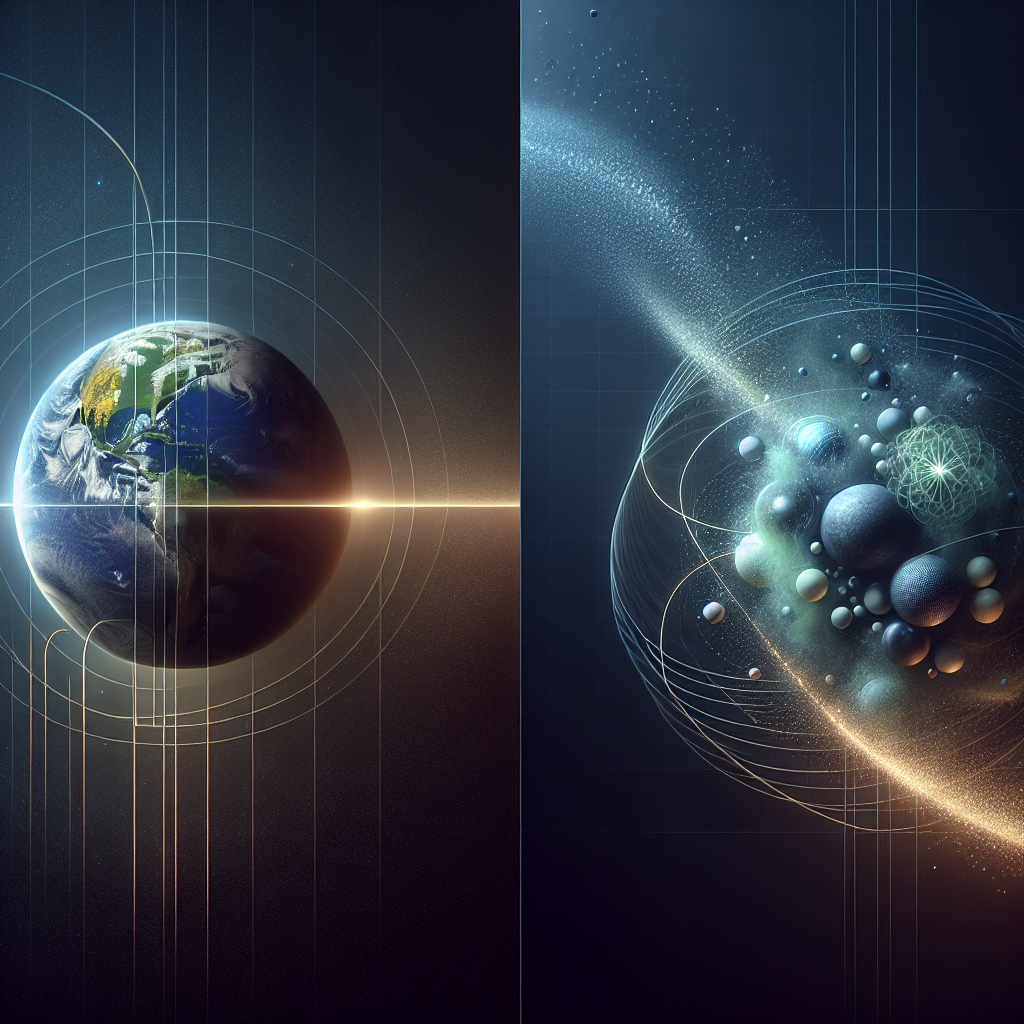Difference Between Weight and Mass: A Simple Explanation
Understanding the difference between weight and mass can be a bit tricky, but it’s a fundamental concept in physics that affects our daily lives more than we might realize. Whether you’re a student trying to grasp basic science concepts or just a curious mind, this guide will simplify these terms for you. Let's dive into the world of physics and unravel the mystery behind weight and mass.
Table of Contents
1. Introduction2. What is Mass?
3. What is Weight?
4. Key Differences Between Mass and Weight
5. Why Does the Difference Matter?
6. Conclusion
7. FAQs
Introduction
When we talk about how heavy something is, we often use the terms "weight" and "mass" interchangeably. However, in the realm of science, these terms have distinct meanings. While both concepts are related to the amount of matter in an object, they are not the same. Understanding the difference is crucial, especially for science enthusiasts and students.
What is Mass?
Mass is a measure of the amount of matter in an object. It is a fundamental property that does not change regardless of the object's location in the universe. Mass is typically measured in kilograms (kg) and grams (g) in the metric system, or in pounds and ounces in the imperial system.

Think of mass as the 'stuff' inside an object. Whether you’re on Earth, the Moon, or floating in deep space, your mass remains constant. Mass is an intrinsic property of an object and is often considered a measure of its inertia, or resistance to acceleration when a force is applied.

What is Weight?
Weight, on the other hand, is the force exerted by gravity on an object. It depends on both the mass of the object and the gravitational pull acting on it. Weight is a vector quantity, which means it has both magnitude and direction, and it is measured in newtons (N) in the scientific context.
The equation for weight is straightforward: Weight = Mass × Gravitational Force. This means that your weight can change depending on where you are in the universe. For example, you would weigh less on the Moon than on Earth because the Moon's gravitational pull is weaker.
Key Differences Between Mass and Weight
Let's break down the core differences between mass and weight to clear any confusion:
1. Nature
Mass is a scalar quantity, meaning it only has magnitude. Weight is a vector quantity, as it has both magnitude and direction.
2. Measurement Units
Mass is measured in kilograms or grams, while weight is measured in newtons.
3. Constancy
Mass remains constant regardless of location. Weight changes with the strength of the gravitational field.
4. Dependence
Mass is an inherent property of an object. Weight depends on mass and gravity.
Why Does the Difference Matter?
Understanding the difference between weight and mass is essential for several reasons:
1. Scientific Accuracy: In scientific contexts, using the correct terms ensures accurate communication and understanding.
2. Practical Applications: In fields like engineering and physics, precise measurements of mass and weight are crucial for designing structures, vehicles, and machinery.
3. Everyday Life: While we often use weight to describe how heavy something feels, knowing the distinction can help in situations like baking, where precise mass measurements are necessary.
Conclusion
Distinguishing between weight and mass is more than just a scientific exercise; it’s a practical skill that enhances our understanding of the world. While mass remains a constant measure of matter, weight varies with gravitational pull. Next time you step on a scale, remember that it’s measuring your mass, influenced by Earth's gravity, giving you your weight.
FAQs
What happens to my weight in space?
In space, far from any significant gravitational pull, you would be effectively weightless. However, your mass remains unchanged.
Can my weight change on Earth?
Yes, your weight can vary slightly depending on your altitude and the Earth's gravitational variations. However, these changes are usually negligible.
Is it correct to say “massive weight loss”?
In casual language, it's fine, but scientifically, it would be more accurate to refer to a "mass loss" since weight depends on gravitational force.
Understanding these concepts not only enriches our scientific knowledge but also helps us make sense of everyday phenomena. Whether you're a student, educator, or lifelong learner, grasping these differences is a step towards appreciating the intricacies of the universe.

